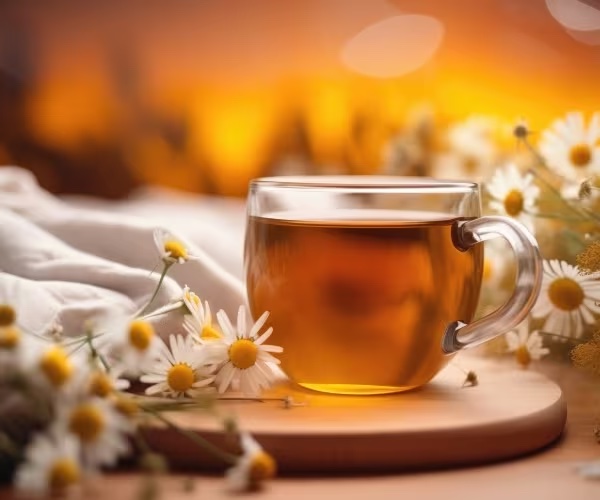The Best and Worst Beverages for Sleep

Dreamstime
By Lynn C. Allison
What you sip before bedtime can affect your quality of sleep. While research shows that chamomile tea can help you fall asleep, other suggestions — like drinking warm milk — are not backed by science. But whatever your choice, it’s still wise to limit the quantities of any beverage to a few sips after dinner so you won’t have to wake up and urinate at night.
According to Everyday Health, here are some of the best and worst nighttime drinks:
Special: The Simple Secret to Really Good Sleep
Green light:
• Water. The Centers for Disease Control and Prevention says that water is still the number one drink at any time of the day. It has zero calories and prevents dehydration, which can negatively affect your sleep.
• Chamomile tea. There is a lot of research to back up the claim that a cup of chamomile tea is conducive to a better night’s sleep. It contains apigenin, an antioxidant that binds to certain receptors in your brain that may promote sleepiness, says Healthline.
• Tart cherry juice. Tart cherry juice is one of the best-known sleep aids, especially the juice made from Montmorency cherries. Research has found that it increases melatonin levels in the body and enhances sleep, so there may be some validity to the latest sleep hack. Dr. Shelby Harris, a licensed clinical psychologist specializing in behavioral sleep medicine, says that melatonin is a natural hormone in the body that helps control sleep. “The melatonin in tart cherry juice may help get better sleep if you have the occasional bad night here and there, but it’s most likely not going to be the cure for chronic insomnia that a lot of people make it out to be,” she tells BuzzFeed.
Red light:
• Alcohol. This is not a good bedtime beverage, say experts. Alcohol can disrupt sleep patterns making it more difficult to fall and stay asleep.
• Coffee. It should come as no surprise that drinking coffee before bedtime is a bad idea. Even the decaffeinated version is not recommended since coffee is a diuretic and can wake you up to urinate.
• Black or green tea. Both these teas contain caffeine and are also diuretics so they don’t make the best bedtime beverages for the same reason as coffee. “I would avoid them within four to six hours of bedtime,” says Dr. Alon Avidan, professor of neurology and director of the Sleep Disorders Center at UCLA Health.
• Soda. The caffeine and sugar found in most colas can trigger sleep issues, say experts. Limit sodas to three to four hours before you go to sleep if they are not caffeinated and make it an eight-hour window if the beverage contains caffeine.
Yellow caution light:
Although there are anecdotal reports that these beverages will help you sleep, science does not back up these claims.
• Magnesium-infused beverages. Beverages like Calm that contain magnesium may help with sleep by regulating the sleep-inducing hormone melatonin. However, the amount of magnesium in these drinks may not be enough to really make a difference, experts tell Everyday Health.
• Warm milk. This is an age-old sleep remedy, but the science behind it is not well established. Avidan warns that milk can cause gastric reflux in those with gastroesophageal reflux disease or GERD. “Drinking a glass of warm milk has always been thought traditionally as calming, but it comes with a price in folks with reflux,” Avidan says.
• CBD-infused drinks. Avidan cautions against trying CBD beverages for sleep because they may affect people in different ways and there’s not a lot of evidence they work. “It’s hard to make a recommendation here because it’s not backed by data,” he says.
© 2024 NewsmaxHealth. All rights reserved.
For more on this story go to: NEWSMAX





